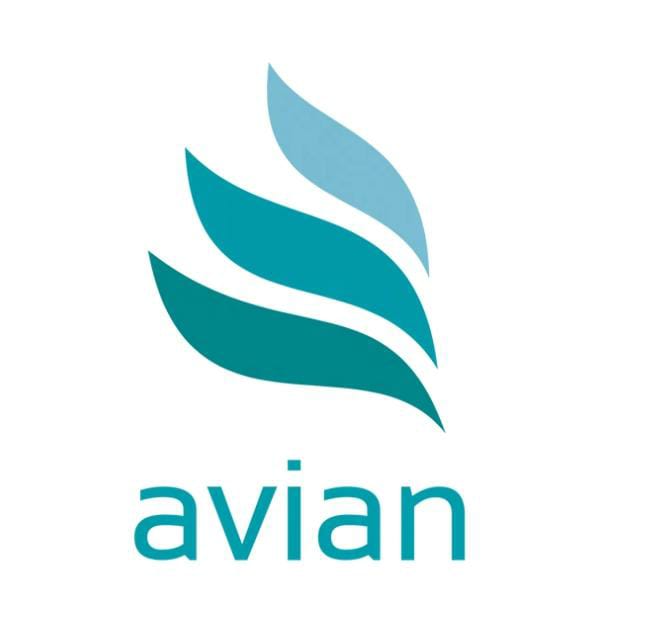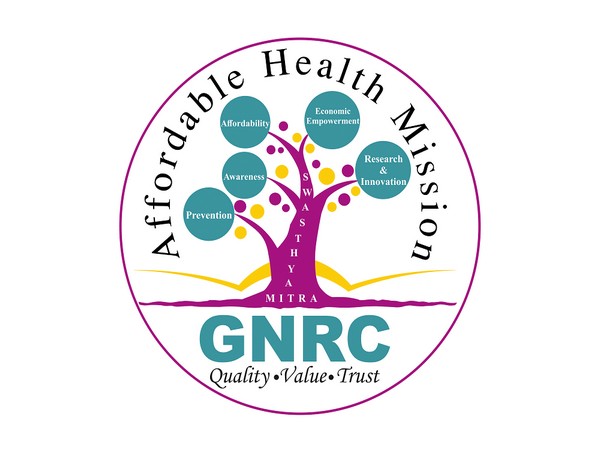











Read More
With an objective to prepare a skilled workforce in the field of civil engineering, Assam down town University offers job-oriented studies with a 4-year B.Tech in Civil Engineering. This programme deals with the design, construction, and maintenance of the physical and naturally built environment, including public works such as roads, bridges, canals, dams, airports, sewerage systems, pipelines, structural components of buildings, and railways. Over time, the university has established itself as one of the best colleges for civil engineering.
Year wise Course Details
Courses for this semester
Calculus and Linear Algebra is a fundamental course designed to provide students with a comprehensive understanding of essential mathematical concepts that underpin various fields of science, engineering, economics, and technology. The course seamlessly integrates the principles of calculus and linear algebra, equipping students with a strong mathematical foundation crucial for advanced studies and problem-solving in Civil Engineering courses.
This course introduces the fundamentals of mathematics. It also introduces problems based on logic and reasoning and builds the foundation for development of basic programming skills.
The course of Engineering Physics for Civil and Mechanical Engineers would give insight to understand the physics and its applications in day to day life. However to apply the basic principles wherever applicable.
The course of Workshop Practices for Civil Engineers would facilitate the development of basic skills an engineer is expected to posses to supervise construction activities like brick masonry, woodwork, concerting, welding, finishing etc. including quality control and maintenances of safety to self, coworkers and the constructed components of the building.
AdtU encourages a range of activities outside the regular curriculum intended to meet learner’s interest, These activities are aimed to develop the social and soft skills and promote a holistic development of the learners, Keeping in mind the 360 degree learning methodology the students are engaged in different activities headed under different clubs viz. Dance, music, photography, drama, literary etc., The students are encouraged to participate in regular club activities, workshops, competitions as per their interest and hobbies, The student members of the club are trained represent AdtU in various inter University student and national level competitions, Renewed personalities are invited to conduct workshops that benefit the members and students by giving them the platform to learn from experts in the respective fields
There is an increasing attention to ethics in engineering practice. Engineers are supposed not only to carry out their work competently and skilfully, but also to be aware of the broader ethical and social implications of engineering and to be able to reflect on these. According to the Engineering Criteria 2000 of the Accreditation Board for Engineering and Technology (ABET) in the US, engineers must have “an understanding of professional and ethical responsibility” and should "understand the impact of engineering solutions in a global and societal context.”
Courses for this semester
ODE, Probability and statustics aims to provide civil engineering graduates with a comprehensive understanding of advanced mathematical concepts and techniques applicable to engineering problems. Students will develop proficiency in differential equations, linear algebra, and numerical methods, essential for modeling and analyzing complex engineering systems. The course seeks to cultivate critical thinking and problem-solving skills, enabling graduates to apply mathematical principles effectively in engineering design, analysis, and decision-making processes. Through theoretical instruction and practical applications, students will enhance their quantitative reasoning abilities, preparing them for success in advanced civil engineering coursework and professional practice.
Chemistry Engineers aims to equip civil engineering graduates with a fundamental understanding of chemical principles and their applications in engineering contexts. Students will learn the properties of construction materials, corrosion mechanisms, and environmental impacts, enabling them to make informed decisions in material selection and design. The course seeks to foster interdisciplinary thinking by integrating chemical concepts with civil engineering practices, preparing graduates to address sustainability challenges and innovate in construction technologies. Through laboratory experiments and theoretical study, students will develop practical skills and critical thinking abilities essential for solving real-world engineering problems with chemical insight.
Engineering Drawing aims to equip civil engineering graduates with the essential skills to communicate and visualize engineering concepts through graphical representation and design principles. Students will learn to create accurate technical drawings, blueprints, and schematics using industry-standard software and drafting techniques. The course emphasizes spatial visualization and geometric modeling, enabling graduates to interpret and generate engineering designs effectively. Through hands-on projects and assignments, students will develop proficiency in interpreting and creating engineering drawings, preparing them for real-world applications in design, construction, and project management within the civil engineering field.
Programming for Problem Solving" aims to equip civil engineering graduates with essential programming skills to tackle engineering challenges efficiently. Students will learn to use programming languages to model, simulate, and analyze civil engineering systems, enhancing problem-solving capabilities. The course fosters algorithmic thinking and logical reasoning, empowering graduates to develop innovative solutions to complex engineering problems. Through hands-on coding exercises and real-world applications, students will cultivate proficiency in programming languages relevant to civil engineering practices. Ultimately, graduates will be prepared to leverage computational tools to optimize designs, improve project efficiency, and contribute to sustainable infrastructure development.
In this course students will discover the art of crafting a well-rounded college experience through extracurricular activities. By exploring the realms of leadership, team-building, and networking, participants will develop essential skills in planning, execution, and evaluation, while cultivating a sense of community and social responsibility. Through hands-on activities, case studies, and group discussions, students will learn how to identify and pursue their passions, build meaningful relationships with peers and mentors, and create a lasting impact on campus and beyond.
Courses for this semester
Biology for Engineers is designed to introduce engineering students to fundamental concepts in biology and their applications in engineering disciplines. The course aims to bridge the gap between biology and engineering, providing students with a strong foundation in biological principles relevant to their field of study.
This course covers the properties, uses, and testing of various building materials, along with construction techniques and practices used in civil engineering. It aims to provide a foundational understanding of material selection, structural integrity, and sustainable construction methods.
This course introduces Civil Engineering students to the fundamental concepts and methods of solving Partial Differential Equations (PDEs) and applying mathematical transforms in the context of engineering problems. The course is designed to provide a strong theoretical and practical foundation for solving complex problems encountered in structural analysis, fluid mechanics, heat transfer, and vibration analysis, all of which are core to civil engineering applications
Surveying and Geomatics is a branch of engineering and applied sciences that combines mathematics, physics, and geography to accurately measure and collect spatial information about the Earth for land development, mapping, engineering, and construction. It involves the use of aerial, satellite, and terrestrial methods to measure and analyze the Earth’s surface and subsurface. Surveyors use a variety of instruments and techniques, such as, Compass, levels, and theodolites, to measure distances, angles, elevations, areas, and volumes. Surveying skills are also used to set out the boundaries of a proposed construction site, to locate buried utilities and pipes, and to provide as-built data for engineering projects such as roads and buildings. Geomatics engineers use their surveying skills to produce maps, plans, and drawings that accurately represent the features of the Earth’s surface.
Fundamental principles of mechanics; Introduction to the mechanics of def ormable bodies; Forces and Moments transmitte d by slender members; Stress- Strain; Stress-Strain Temperature relations; Torsion; stresses and deflections due to bending; Stability of equilibri um; Static failure criteria, ductile and brittle material; Dynamic failure criteria.
This course introduces fundamental concepts of electronics, including circuit theory, semiconductors, and basic electronic components, tailored for civil engineering applications. It emphasizes understanding electronic systems for infrastructure monitoring and control.
Building Information Modelling (BIM) in Civil Engineering is a cutting-edge process that integrates digital tools to design, manage, and visualize construction projects. This course explores 3D modeling, project lifecycle management, and collaborative workflows for efficient infrastructure development. Gain skills to streamline construction processes, enhance decision-making, and drive innovation in civil engineering.
This course introduces students to the concepts and techniques of computational thinking—a problem-solving approach that involves breaking down problems, creating algorithms, and leveraging computational tools. It equips students with the skills to analyze complex issues, design efficient solutions, and use programming to implement and test these solutions.
Courses for this semester
Fluid mechanics and hydraulics engineering explores fundamental concepts and practical applications in fluid flow. Students begin by understanding boundary layer flow and its relevance in various engineering contexts. They then delve into the equations governing open channel flow, analyzing their interactions and selecting appropriate equations for problem-solving. The course further investigates physical mechanisms behind hydraulic phenomena like jumps, surges, and different flow types, empowering students to apply mathematical relationships effectively in analyzing and predicting such hydraulic behaviors.'
Instrumentation and Control is a fundamental course that explores the principles, design, and application of instruments and control systems used in engineering processes. This course provides students with an in-depth understanding of measurement systems, sensors, transducers, and control methodologies, preparing them to analyze, design, and implement efficient control strategies in various engineering domains.
1. To provide insight on the different functions and operations of different equipment and techniques during construction 2. To impart knowledge on the various maintenance and safety to be considered during construction 3. To acquire knowledge on the life cycle of a construction equipment 4. To adopt mechanization in the Construction industry
1. To facilitate learners to understand sustainable building designs and its parameters such as energy and water efficiency, Comfort in buildings, and waste management. 2. To expose the learners to shading systems, thermal and visual comfort. 3. To impart fundamental knowledge on Life cycle assessment and Green ratings and certifications..
Transportation Engineering is a fundamental aspect of civil engineering that focuses on the planning, design, operation, and management of transportation systems. This course aims to provide students with a comprehensive understanding of various modes of transportation, their infrastructures, and their impact on society and the environment. It covers principles and methodologies essential for efficient and sustainable transportation systems.
Soil Mechanics &Geotechnical Engineering encompasses the study of soil behavior, classification, and properties, enabling the design of secure foundations and stable structures. It involves assessing slope stability, earthwork design, and understanding geotechnical investigation methods for effective decision-making in construction and environmental projects.
Structural Analysis I equips students with a comprehensive understanding of structural mechanics and engineering principles essential for designing various structures. Through theoretical foundations and practical applications, students learn to differentiate materials and loading systems, classify structures based on configuration and behavior, and apply design concepts to develop reinforced concrete members. Additionally, they gain insight into the basic concepts of special structures like bridges and towers, understanding their unique design considerations and challenges. By the course's end, students emerge proficient in analyzing structural elements, comprehending structural behavior, and applying design principles to real-world engineering scenarios.
Courses for this semester
Environmental Engineering is a comprehensive course that addresses water supply, wastewater treatment, air quality control, solid waste management, and building plumbing systems. Students will explore sources of water and water quality issues, water treatment processes, sewage conveyance and treatment, air pollution quantification and control, and integrated solid waste management. Additionally, the course covers building plumbing systems and their components. Throughout the program, students will develop a deep understanding of environmental regulations, sustainable practices, and the crucial role of environmental engineers in protecting public health and the environment.
Transportation Engineering is a specialized field of civil engineering that focuses on the planning, design, operation, and maintenance of transportation systems. Students learn about traffic flow theory, transportation planning, geometric design, pavement design, and traffic management techniques. Additionally, the course covers sustainable transportation practices and emerging technologies, preparing students to address the challenges of modern transportation systems
Co-curricular refers to activities, programs, and learning experiences that complement, in some way, what students are learning in school i.e., experiences that are connected to or mirror the academic curriculum.
Extra-curricular activities will help the students to enhance and engage in their selected hobbies and interests. It also allows them to explore their hidden talents and develop a positive outlook towards life.
Explore the fascinating world of Mechanics of Materials in Civil Engineering, where you'll delve into the behavior of structural components under various loads and stresses. This course equips you with the essential knowledge to analyze and design resilient structures, ensuring their safety and longevity. Uncover the principles governing material deformation, stress distribution, and failure mechanisms, and apply this understanding to real-world engineering challenges.
The course in Structural Engineering covers essential concepts such as energy principles, stability, and equilibrium, while focusing on the strength, durability, and safety of buildings, bridges, and other structures. Students will learn to analyze and design structural systems, including concrete and steel elements, as well as explore wind and earthquake loads. The course also introduces special topics like cable structures, prestressed concrete bridges, and fire protection.
The course explores the key principles and frameworks essential for developing and executing successful entrepreneurial strategies in a dynamic business environment. Students will learn to evaluate business opportunities, identify and mitigate risks, and design sustainable growth strategies for new ventures. The course emphasizes the role of innovation, competitive advantage, and market positioning in entrepreneurship, focusing on both the challenges and opportunities faced by entrepreneurs in launching and scaling businesses.
Hydrology is a branch of geoscience concerned with the origin, distribution, movement, and properties of waters of the earth. This includes fluid flow and transport of contaminants in the subsurface environment. Past and present research focuses on a broad spectrum of hydrologic problems. These range from quantifying snow distribution and melt, rainfall and infiltration processes, floods, droughts, terminal lake responses, soil erosion, and groundwater/surface water exchanges
This course deals with how structures are built and projects are developed on the field. After completion of the course students will have an understanding of modern construction practices, construction dynamics, resources required, cost estimation, project economics and administration of construction projects.
This course will help introduce the students to various hydraulic engineerings problems like open channel flows and hydraulic machines. After the course, the student should be able to perform different types of experiments related to hydraulic engineering
Techno Professional Skills in Civil Engineering focuses on equipping students with technical and interpersonal skills, including project management, teamwork, and effective communication, crucial for success in the civil engineering field.
Courses for this semester
Positive Psychology explores the science of well-being and human flourishing, focusing on understanding and promoting factors that contribute to a fulfilling and meaningful life. This course provides an overview of key concepts such as happiness, resilience, optimism, and strengths-based approaches to personal development. Through a combination of theory, research, and practical exercises, students will learn strategies for enhancing their own well-being and fostering positive relationships and communities. Topics include the role of positive emotions, mindfulness, gratitude, and character strengths in promoting psychological health and resilience. By the end of the course, students will have gained a deeper understanding of the factors that contribute to a fulfilling life and will be equipped with practical tools to cultivate greater well-being and happiness in themselves and others.
Design of RC structure is an advanced course that builds upon the foundational concepts of structural analysis covered in Structural Analysis I. It delves deeper into the analysis and design of complex structural systems, introducing topics such as advanced analysis methods, indeterminate structures, structural dynamics, stability analysis, plastic analysis, and design considerations. Through this course, students gain the knowledge and skills needed to analyze and design sophisticated structures, preparing them for real-world engineering challenges in civil engineering field.
Summarize the basic principal and standard methods for working out quantities in estimating.Demonstrate the detailed estimate of buildings and workout rate analysis of the various items ofwork. Understand the material requirements as per specified norms and standards Assess the valuation of buildings and provide practical knowledge of standard specifications of items of buildings construction.
Structural Analysis II is an advanced course that builds upon the foundational concepts of structural analysis covered in Structural Analysis I. It delves deeper into the analysis and design of complex structural systems, introducing topics such as advanced analysis methods, indeterminate structures, structural dynamics, stability analysis, plastic analysis, and design considerations. Through this course, students gain the knowledge and skills needed to analyze and design sophisticated structures, preparing them for real-world engineering challenges in civil engineering field.
"Irrigation Engineering"" course covers irrigation concepts, hydraulic structures, and water estimation for crops. Students learn to analyze, plan, and design irrigation projects, including channels and structures for various purposes like drainage and flood control. They also apply math, science, and technology to address water management challenges effectively."
This course provides an in-depth understanding of the fundamental and applied aspects of physico-chemical processes used in water and wastewater treatment. It is designed for students and professionals interested in the principles, design, and application of these processes to achieve sustainable water quality management.
The Pavement Materials course provides an in-depth understanding of the materials used in pavement construction and maintenance. It covers various aspects such as the properties and characteristics of aggregates, asphalt, concrete, and other materials used in pavement layers. Students learn about the engineering properties of pavement materials, including strength, durability, flexibility, and resistance to deformation and environmental factors. Additionally, the course explores methods for testing and evaluating pavement materials
Co-curricular activities are an integral part of curriculum which provides educational activities to the students and thereby help in broadening their experiences. Co-curricular activities can be defined as the activities that enhance and enrich the regular curriculum during the normal university hours. All co-curricular activities are organized with specific purpose which vary according to the nature and form of such activities.
In this course students will discover the art of crafting a well-rounded college experience through extracurricular activities. By exploring the realms of leadership, team-building, and networking, participants will develop essential skills in planning, execution, and evaluation, while cultivating a sense of community and social responsibility. Through hands-on activities, case studies, and group discussions, students will learn how to identify and pursue their passions, build meaningful relationships with peers and mentors, and create a lasting impact on campus and beyond.
In this course, "Techno Professional Skills: Mastering the Digital Workplace," students will gain a comprehensive understanding of the tools, technologies, and best practices required to excel in a rapidly evolving tech landscape. Through hands-on training, interactive simulations, and real-world case studies, participants will develop expertise in cloud computing, data analysis, project management, cybersecurity, and collaboration platforms, while learning how to prioritize digital literacy, adapt to new technologies, and stay ahead of the curve in a rapidly changing industry.
Courses for this semester
Design of Steel Structures is a course that focuses on the principles of designing steel structures, covering material specifications, stability, and connection design. This course reviews fundamentals, including the Limit State Method of Design. It emphasizes the design of structural steel members in frames, trusses, and various civil engineering projects. The latest Indian Standard Code is used for the design methodology. It includes the analysis of steel frame structures for local and global buckling and material failure. Overall, the course provides students with a comprehensive understanding of steel structure design and its applications in civil engineering projects.
Summarize the basic principal and standard methods for working out quantities in estimating.Demonstrate the detailed estimate of buildings and workout rate analysis of the various items ofwork. Understand the material requirements as per specified norms and standards Assess the valuation of buildings and provide practical knowledge of standard specifications of items of buildings construction.
1. Introduce the learners to the basic engineering concepts used in heavy lifting and provide basic knowledge about the various types of machinery and techniques used in the industry. 2. Provide the learners an insight on the classification and application of Cranes and tower cranes, Lifting gears, accessories, and equipment for horizontal movement. 3. Give the learners an understanding on design of load bearing structures and how to develop a lift plan including the selection of suitable methods, machineries and lifting gears. 4. Impart knowledge the learners on the Alternate methodologies and safety to be considered during construction with the help of case studies.
Courses for this semester
"Construction Practice & Management" covers essential principles of construction planning, execution, and project management. It focuses on industry best practices, cost control, safety, and sustainable building techniques.
Foundation Engineering covers the analysis, design, and construction of building foundations, including soil mechanics, bearing capacity, and settlement considerations. The course emphasizes practical applications for ensuring structural stability and safety.
This course explores the integration of Artificial Intelligence (AI) in various engineering domains, covering machine learning, optimization, and automation techniques. Students will learn to apply AI tools for problem-solving, predictive modeling, and decision-making in engineering applications.

CST- Common scholarship test is a national and international level online MCQ based examination funded for intellectual empowerment by Assam down town University.
CST- Maximum enrolment each year is 269 seats and any 10+2 students can apply. Adtu is northeast India’s first placement driven university to provide 100% scholarship benefits worth 30 cr.
CST aims to inspire brilliant and competent students to pursue further education. Accredited with a prestigious grade by NAAC, UGC and AICTE.
Explore more scholarships that can help you reach out your goal with financial aid.
This scholarship is valid on the basis of the board/university examination
| 95% & above | 100% Scholarship on all semester |
| 90%-94.9% | 50% Scholarship on all semester |
| 80%-89.9% | 25% Scholarship on all semester |
This scholarship is valid on the basis of the board/university exam
| National & International Level | 100% Scholarship on all semester |
| State Level | 50% Scholarship on all semester |
| District Level | 25% Scholarship on all semester |
This scholarship is valid on the basis of the board/university exam
| National & International Level | 100% Scholarship on all semester |
| State Level | 50% Scholarship on all semester |
| District Level & NCC Certificate Holder | 25% Scholarship on all semester |
Discover a multitude of world-class amenities and cutting-edge resources at Assam down town University, enhancing your academic journey to new heights.
The Start-Up & Incubation Centre at Assam down town University provides a supportive environment for young entrepreneurs to develop and grow their business ideas. The center provides mentorship, funding, and networking opportunities to help innovative ideas become successful businesses.
SFURTI scheme to support rural entrepreneurs and innovators, an initiative by the Ministry of MSME
TIDE 2.0 scheme for ICT-based startups which provides a grant of Rs. 4L and Rs. 7L under EiR and Grant categories respectively, an initiative by the Ministry of MeitY.
dtVL Ideation, an incubation program for early-stage entrepreneurs with a market-ready solution/product, offering interest-free loans up to Rs. 2 lakhs.
Sprout UP, an incubation program for students, faculties, and researchers with innovative business ideas, prototypes, or technology solutions.




























.png)









.png)











"I am a BBA student of 3rd semester. I hail from Bhutan. I vow that I am having a great experience i...
"AdtU is amazing. I am a BBA student of 2019-22 batch and I am just grateful for the amount of oppor...
Let us be grateful to the people and place who makes us happy. They are the charming gardeners whom ...
Currently I am pursuing MBA in Assam Down Town University. MBA is the professional course through wh...
AdtU is a university that focuses on giving knowledge, education and simultaneously making the stude...
The Assam downtown University has been a great learning experience. The university has provided me w...
My experience with AdtU has been splendid one indeed. Little needs to said about its scenic infrastr...
As a student I am very glad that I have got an opportunity to study here in Assam downtown universi...
My name is Sakhyajit Roy. I?m from Tripura. I joined the university on Auguest, 2017 as a student of...
I share immense pleasure to share my post graduate program experience in Assam down town University....
AdtU is a platform where I got golden opportunities to feed my zeal for knowledge through the dynami...
I am fortunate to get an opportunity to study here in Assam Downtown University. The best thing abou...
Our university is one of the best place for developing ourselves in the field of research and acedem...
ADTU is a university that is very good interms of infrastructure, academics and placements. Our tea...
It is one of best private colleges in North East India, it also provides a good environment for ed...
ADTU is a good University which provides the students with best quality lectures and ensures comfort...
The environment of Assam downtown university is very pleasant.The department of BMLT is very good a...
The university has all the necessary facilities and amenities for students . The classrooms and the ...
Assam downtown University is well recognised all over india. In the ongoing pandemic situation it ha...








